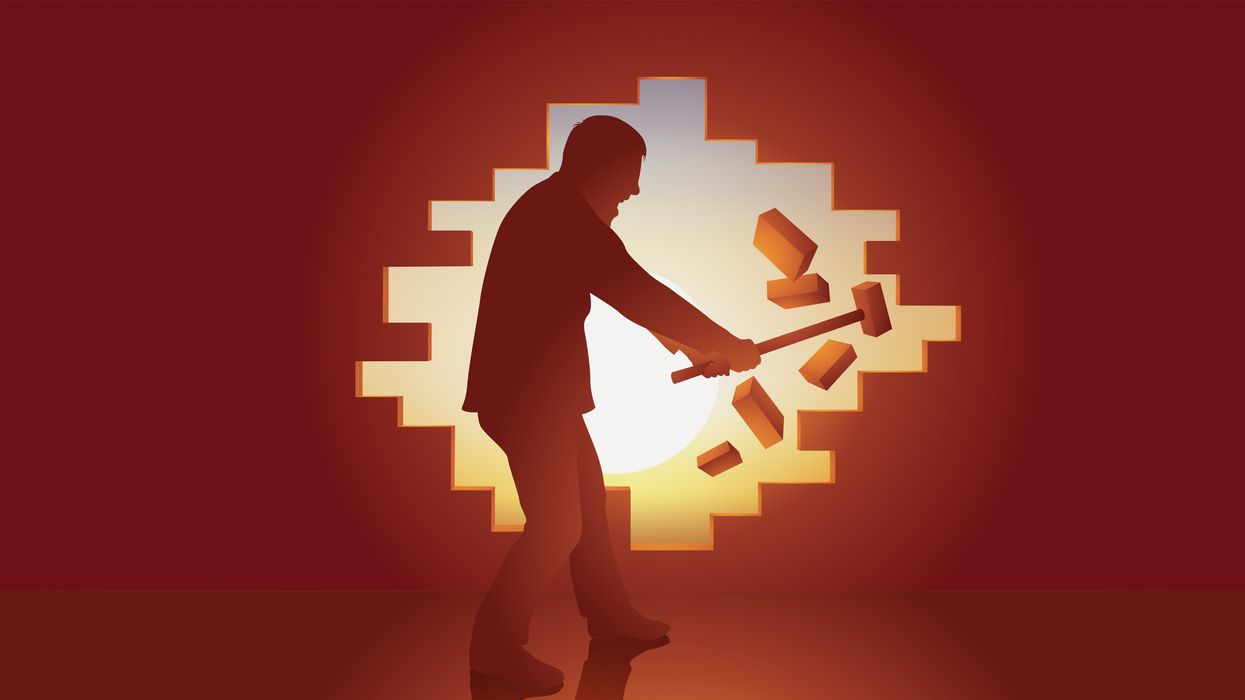Rubin is an alumnus of the Bridge Alliance Leaders Mastermind Cohort. He is founder and principal of Bstory, an initiative that uses the power of collective story to breathe new life into our civic and moral imaginations.
I am sitting here in the quiet of what writer Helena Fitzgerald called “ Dead Week “ — the week between Christmas and New Year’s Eve — when nothing counts, and when nothing is quite real. She states, ”To some degree, I think all of society feels a little aimless during these few days.”
In some ways, this describes what many of our lives have felt like during the pandemic. There is a part of me that wants to reflect and think about what it means to build a post-pandemic world, but what sense does it make to design the future in an unpredictable world? I say this as one who is inspired by the future and what could be, but quietly wonders what good it does to dream of a new world when there are no signs of the pandemic ending any time soon. Being stuck halfway between possibility and fulfillment often produces a peculiar mood.
Perhaps this was what one of my intellectual and spiritual heroes, Howard Thurman, was grasping for when he penned “ The Luminous Darkness.” Thurman published the book in 1965, the same year Congress passed the historic Voting Rights Acts. He describes this brief book as an analysis of the anatomy of segregation and the ground of hope.
As he muses and reflects on the space between legal segregation and the hope for better days through the legal advances, Thurman admonishes us that “The walls that divide must be demolished … cast down, destroyed, uprooted.”
However, old demons have reemerged around who does and does not get a vote. While businesses tend to be silent on climate and election legislation, an unlikely partner in the Leadership Now Project stated it well: "When every American has a voice in the political system, our government benefits from a diversity of opinion and thought and can deliver sound policy solutions. Full voter engagement translates to policies that are reflective of, and more responsive to, the needs of all citizens, leading to an expansion of economic opportunity for all."
Let’s pass the John Lewis Voting Rights Advancement Act, but as Thurman states, “Know that the law cannot deal with the human spirit directly. This is not within its universe of discourse.” It is up to us to build a world where we can, in his words, “relate to each other as human beings — good, bad, mean, friendly, prejudiced, altruistic, but human beings.”
On Wednesday, a coalition of organizations organized by Ideos Institute is hosting what they have entitled the National Day of Dialogue. This is an invitation to all Americans to change the current state of division and polarization by crossing lines of difference into real dialogue. I truly believe that this happens when we affirm one another as human beings. In full disclosure, Urban Rural Action, which I am affiliated with, is joining with Ideos in this effort.
This date was specifically chosen to remind us of a moment when polarization in America was at an all-time high. “If we were simply having the hard conversations — you know, the ones we’re taught not to have at the dinner table or in polite company — without judgment, animus, or fear, January 6th might just have been a regular day,” says Ideos President Christy Vines,.
We as a country have short memories, but it was less than a year ago when that riot and violent attack arose against Congress in the U.S. Capitol. Unfortunately, we have yet to fully come to terms with what really happened that day. Many made the statement “that this is not us.” I disagreed then and I disagree now. This is us and we have to come to terms with how we got here and unless we do, we will remain aimless, just like Dead Week, when nothing counts and when nothing is quite real.
In fact, we do not have to wait until a specific date. I leave you with these final words taken from ”Luminous Darkness”: “So much is placed upon the fact of the existence of walls that the symbolic fact of the walls is ignored or is an unknown quantity.” It is the symbolic walls that block our view and it is time to uproot them and cast them down.
















Trump & Hegseth gave Mark Kelly a huge 2028 gift